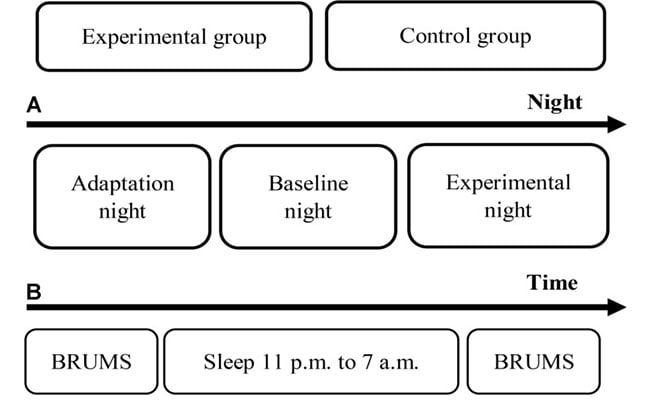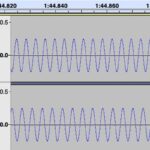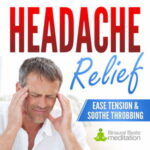Delta brainwaves are most abundant in deep sleep (stage N3), an important regenerative period where the body heals and repairs itself. Without enough of this deep sleep, we are unable to properly recover and heal.
The first cycle of Stage N3 sleep lasts around 45-90 minutes, and the cycles get shorter as your night's sleep goes on. As we age, we experience less deep sleep, to the point where at an old age we may experience little to none.
There is huge popularity around wanting to increase deep sleep to keep us younger and healthier. And our binaural beats music has become a go-to tool for thousands seeking to improve sleep quality.
Quite rightly there is some speculation is to whether there is proof that this natural therapy can do just that. And the answer is yes, as we have seen in previous studies. However, because research in this area is small due to funding, studies tend to be few and far between.
However, in 2018, a landmark study was completed and published in Frontiers in Human Neuroscience, a journal that publishes rigorously peer-reviewed research.
In this post, we'll take a look at this study and the results it found.
Study Design
This study investigated the effect of a 3-Hz binaural beat on the different stages of sleep (1).
The Delta frequency state operates at 1-4 Hertz. This state is associated with the following:
- Deep sleep
- Pain relief
- Healing
- Anti aging (cortisol reduction / DHEA increase)
The study used 24 participants, split between experimental and control groups.
The experimental group were given the binaural beats to listen to. This took place over three consecutive nights consisting of an adaptation night, a baseline night, and an experimental night.
The control group went through the same procedure but they were not exposed to the binaural beats. Instead, a silent sham stimulus was used, which they were blind to (had no knowledge of).
The audio stimulus was initiated when the first epoch of the N2 sleep stage was detected and stopped when the first epoch of the N3 sleep stage was detected.

Results
The results showed that the 3 Hertz binaural beat increased Stage N3 (deep sleep) duration to longer than that of the control group. The N2 duration of the experimental group was shorter than that of the control group, and the N3 latency of the experimental group was shorter.
This means that using the Delta binaural beats the participants entered deep sleep faster and stayed there longer.
Due to changes in the control group, the results were confirmed indeed to be an effect of the stimulus and not the habituation of the surrounding environment, by comparisons of the changes of the control group.
This is a hugely positive outcome that confirms as similar studies have that Delta binaural beats can improve deep sleep (N3) and therefore help people improve healing and recovery. This also has implications for anti-aging.
It also shows the immediate positive effect of binaural beats on the listener.
+ See our Delta binaural beats here
How Reliable is This Study?
The design of this study is very reliable because it was a double-blind placebo study.
In both the control and experimental groups, the participants did not know if they were receiving the sham stimulus. This means that the results can be relied upon.
It is also worth noting that the authors, Nantawachara Jirakittayakorn and Yodchanan Wongsawat, have previous experience in this area of research. This is their fourth study involving binaural beats to be published in a peer reviewed journal (2).
Study Limitations
One limitation of this study was that it was carried out over three nights. A longer term study would reveal additional information regarding continued exposure and habituation.
That being said, what this short period demonstrates is that Delta binaural beats are immediately effective and capable of producing positive results on the first night of listening.
Conflict of Interest
The study authors declared that there is no conflict of interest. The research was conducted in the absence of any commercial or financial relationships.









